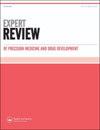冠状动脉疾病的遗传背景:临床意义和前景
IF 1.2
Q4 PHARMACOLOGY & PHARMACY
Expert Review of Precision Medicine and Drug Development
Pub Date : 2020-04-09
DOI:10.1080/23808993.2020.1746640
引用次数: 0
摘要
遗传背景和生活方式因素影响冠状动脉疾病(CAD)的个体风险和临床表现。在过去的几十年里,心血管疾病(CVD)成为世界范围内发病率和死亡率的最重要原因,导致科学界对心血管危险因素控制的兴趣日益增加。一些队列研究表明,在冠心病患者中,缺血性心脏病的家族史是常见的,这表明遗传因素发挥了最大的相关性。用于研究这些疾病遗传基础的技术已经从连锁研究发展到候选基因研究和全基因组关联研究(GWAS)。连锁研究已经能够确定与单基因疾病相关的遗传变异,而全基因组关联研究在确定与复杂疾病相关的遗传变异方面更为成功。然而,家庭背景不仅传递遗传信息,还传递态度和生活习惯,这被证明对整体心血管风险有显著影响。在患者定制化管理的时代,本综述的目的是总结CAD患者的遗传背景,重点介绍最新的基因靶向治疗,为药物遗传学在日常临床实践中的应用提供潜在的未来前景。本文章由计算机程序翻译,如有差异,请以英文原文为准。
Genetic background of coronary artery disease: clinical implications and perspectives
ABSTRACT Introduction Both genetic background and life-style factors influence coronary artery disease (CAD) individual risk and clinical manifestations. Areas covered Over the last decades, cardiovascular disease (CVD) emerged as the most important cause of morbidity and mortality worldwide, leading the scientific community to nourish increased interest in cardiovascular risk factors control. Several cohort studies have shown that a family history of ischemic heart disease is common among patients suffering from CAD, suggesting that genetic factors play a role of utmost relevance. The techniques used to study the genetic basis of these diseases have evolved from linkage studies to candidate gene studies and genome-wide association studies (GWAS). Linkage studies have been able to identify genetic variants associated with monogenic diseases, whereas genome-wide association studies have been more successful in determining genetic variants associated with complex diseases. However, family context transmits not only genetic information, but also attitudes and lifestyle habits which proved to significantly influence the overall cardiovascular risk. Expert opinion In the era of patient-tailored management, the aim of this review is to summarize the genetic background of patients with CAD, focusing on the most updated gene-targeted therapies, providing potential future perspectives of pharmacogenetics utility in daily clinical practice.
求助全文
通过发布文献求助,成功后即可免费获取论文全文。
去求助
来源期刊

Expert Review of Precision Medicine and Drug Development
PHARMACOLOGY & PHARMACY-
CiteScore
2.30
自引率
0.00%
发文量
9
期刊介绍:
Expert Review of Precision Medicine and Drug Development publishes primarily review articles covering the development and clinical application of medicine to be used in a personalized therapy setting; in addition, the journal also publishes original research and commentary-style articles. In an era where medicine is recognizing that a one-size-fits-all approach is not always appropriate, it has become necessary to identify patients responsive to treatments and treat patient populations using a tailored approach. Areas covered include: Development and application of drugs targeted to specific genotypes and populations, as well as advanced diagnostic technologies and significant biomarkers that aid in this. Clinical trials and case studies within personalized therapy and drug development. Screening, prediction and prevention of disease, prediction of adverse events, treatment monitoring, effects of metabolomics and microbiomics on treatment. Secondary population research, genome-wide association studies, disease–gene association studies, personal genome technologies. Ethical and cost–benefit issues, the impact to healthcare and business infrastructure, and regulatory issues.
 求助内容:
求助内容: 应助结果提醒方式:
应助结果提醒方式:


